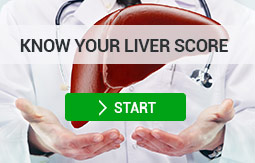What’s in this article
- What is stress?
- How to tell if you are stressed
- How stress affects your liver health
- Effective Management
- Self-medicating
- When to seek help
What is stress?
Stress is not good for our bodies, it can lead to many physical and mental health issues, but what exactly is it? It is our bodies reaction to a situation that the body deems harmful. Without stress the human race would not have survived, going back to caveman times, it was what alerted our ancestors of potential dangers. Fast forward to today and we still have that ‘fight or flight’ mode built into us. When we get stressed, our body releases a mixture of hormones and chemicals such as adrenaline, cortisol and norepinephrine. This causes the body to have different responses such as blood being diverted to muscles or shutting down our digestion. It is easy to see that over time stress can really take a toll on our health.
How stress affects your liver health
In a recent publication in the Journal of Gastroenterology and Hepatology it was noted that during stressful times, natural killer cells are expanded in the liver and in some cases, contributed to liver cell death and made the liver disease worse. The study also found that in the part of the brain that controls the liver, stress was found to weaken blood flow which could lead to or trigger liver damage. The authors concluded that even though the interactions between stress and the liver are not fully understood, there seems to be a negative association regarding liver disease progression.
How to tell if you are stressed
We all handle stress in different ways and so symptoms are broad. Stress can mimic symptoms of many health conditions so it is important to talk to your doctor about any changes with your mind and body.
Emotional symptoms include:
- Becoming easily agitated, frustrated, and moody.
- Feeling overwhelmed or losing control
- Difficulty relaxing and quieting your mind
- Low self-esteem, loneliness, feeling worthless and depressed
- Avoiding others
Physical symptoms include:
- Low energy
- Headaches
- Upset stomach, diarrhea, constipation, and nausea
- Aches, pains, and tense muscles
- Chest pain and rapid heartbeat
- Insomnia
- Frequent colds and infections
- Loss of sexual desire and/or ability
- Nervousness and shaking, ringing in the ear, cold or sweaty hands and feet
- Dry mouth and difficulty swallowing
- Clenched jaw and grinding teeth
Effective Management
There are many ways to eliminate stress from your life and you will need to find the best one to suit you. Below are some ideas for stress-busting:
- You are what you eat – eat healthy and nutritious meals
- Stay hydrated
- Exercise –one of the best strategies to staying healthy
- Learn to meditate
- Get giggling – laughing is an effective stress buster
- Work on spoiling yourself with hobbies, massages, treatments etc.
- Surround yourself with positive people and attitudes
Self-medicating
Unfortunately, many people turn to self-medicating when they are stressed as it seems to be the easy option for them. Self-medicating can come in many forms such as excessive consumption of alcohol, drugs, smoking and even food. It is important to be self-aware and notice if you yourself are self-medicating before it turns into an addiction or starts to negatively affect your life or your health. The most common forms of self-medication are all very dangerous for liver health, especially when used regularly. If you think you may be self-medicating you should talk to your doctor. If you think someone you know may be self-medicating you should try to talk to them or someone you think may be able to help their situation.
When to seek help
Sometimes we need to seek help from others and this is not a bad thing. Realizing that you need help is a huge step and it means you are on the road to feeling better. If you have tried to reduce stresses in your life or if you are unsure that stress is the cause of your symptoms you should see a doctor as soon as possible. If you just cannot manage the stress in your life it may help to see a therapist or counselor to talk about what might be causing the problem.
Find out about the nutrition bar that 98% of liver health experts would recommend!
References
hcvadvocate.org
stress.org.uk
“Does Stress Exacerbate Liver Disease?,” Yoichi Chida, Nobuyuki Sudo and Chiharu Kubo. Journal of Gastroenterology and Hepatology 20 (2006) 202- 208
mayoclinic.org

 (442) 244-5115
(442) 244-5115















